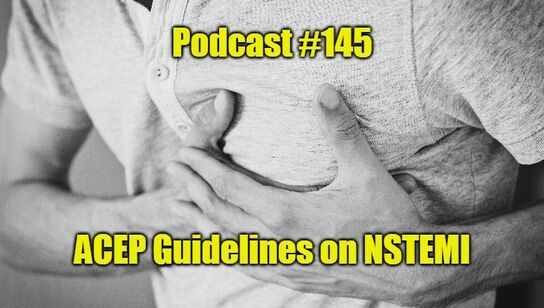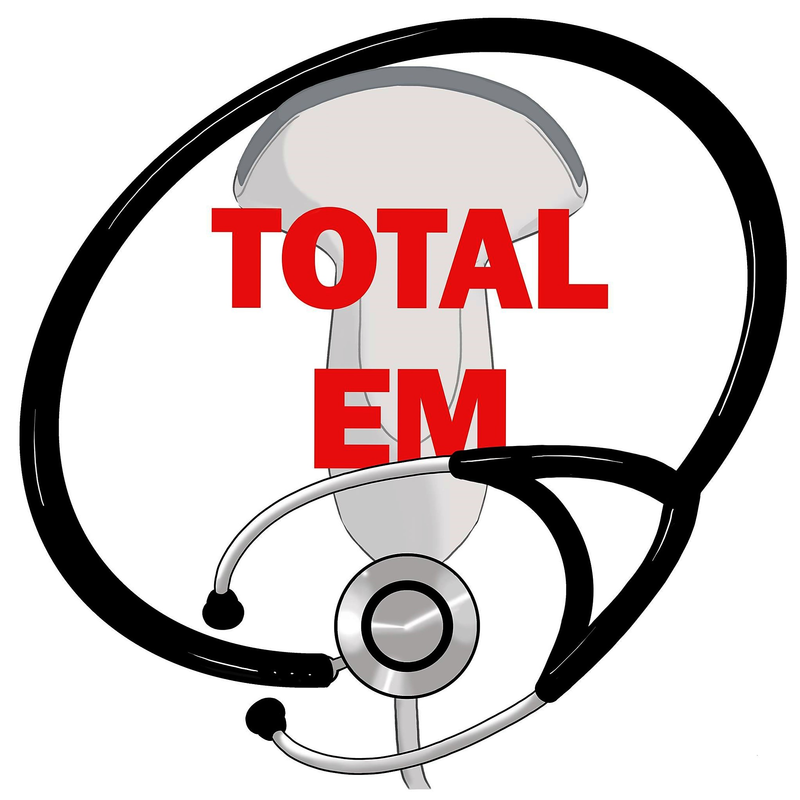|
In the later half of 2018, the American College of Emergency Physicians (ACEP) published their guidelines with non-ST-elevation myocardial infarction (NSTEMI) patients. These guidelines were beneficial to support some current practices based on current evidence. In this post, we review the guidelines and some of the supporting evidence.
Check out the full breakdown of the guidelines below (PDF), but here is a brief review as listed on the ACEP website.
Question 1: In adult patients without evidence of ST-elevation acute coronary syndrome, can initial risk stratification be used to predict a low rate of 30-day major adverse cardiac events? Level B Recommendations In adult patients without evidence of ST-elevation acute coronary syndrome, the History, ECG, Age, Risk factors, Troponin (HEART) score can be used as a clinical prediction instrument for risk stratification. A low score (≤3) predicts a 30-day major adverse cardiac event miss rate within a range of 0% to 2%. Level C Recommendations In adult patients without evidence of ST-elevation acute coronary syndrome, other risk-stratification tools, such as Thrombolysis in Myocardial Infarction (TIMI), can be used to predict a rate of 30-day major adverse cardiac event. Question 2: In adult patients with suspected acute non–ST-elevation acute coronary syndromes, can troponin testing within 3 hours of emergency department presentation be used to predict a low rate of 30-day major adverse cardiac events? Level C Recommendations 1. In adult patients with suspected acute non–ST-elevation acute coronary syndrome, conventional troponin testing at 0 and 3 hours among low-risk acute coronary syndrome patients (defined by HEART score 0 to 3) can predict an acceptable low rate of 30-day major adverse cardiac events. 2. A single high-sensitivity troponin result below the level of detection on arrival to the emergency department, or negative serial high-sensitivity troponin result at 0 and 2 hours is predictive of a low rate of major adverse cardiac events. 3. In adult patients with suspected acute non–ST-elevation acute coronary syndrome who are determined to be low risk based on validated accelerated diagnostic pathways that include a nonischemic ECG result and negative serial high-sensitivity troponin testing results both at presentation and at 2 hours can predict a low rate of 30-day major adverse cardiac events allowing for an accelerated discharge pathway from the emergency department. Question 3: In adult patients with suspected acute non–ST-elevation acute coronary syndromes in whom acute myocardial infarction has been excluded, does further diagnostic testing (eg, provocative, stress test, computed tomography [CT] angiography) for acute coronary syndrome prior to discharge reduce 30-day major adverse cardiac events? Level B Recommendations Do not routinely use further diagnostic testing (coronary CT angiography, stress testing, myocardial perfusion imaging) prior to discharge in low-risk patients in whom acute myocardial infarction has been ruled out to reduce 30-day major adverse cardiac events. Level C Recommendations Arrange follow-up in 1 to 2 weeks for low-risk patients in whom myocardial infarction has been ruled out. If no follow-up is available, consider further testing or observation prior to discharge (Consensus recommendation). Question 4: Should adult patients with acute non–ST-elevation myocardial infarction receive immediate antiplatelet therapy in addition to aspirin to reduce 30-day major adverse cardiac events? Level C Recommendations P2Y12 inhibitors (clopidogrel) and glycoprotein IIb/IIIa inhibitors may be given in the emergency department or delayed until cardiac catheterization. HEART Score of 5 cutoff has been suggested, but there are limitations as discussed on this Journal Feed discussion. HEART Score accuracy via systematic review and meta-analysis. Also check out the EM Literature of Note analysis of the ACEP guidelines.
0 Comments
Leave a Reply. |
Libsyn and iTunesWe are now on Libsyn and iTunes for your listening pleasure! Archives
August 2022
Categories |
||||||||||||


 RSS Feed
RSS Feed